7 tips for choosing flexible (soft) tiles: types and manufacturers
Flexible tiles are now used to cover 90% of the roofs of private homes in the United States. This roofing material the new generation is confidently gaining popularity in the domestic market. Externally, soft tiles resemble traditional ceramic, but bypasses it by its many advantages. Durable, lightweight, practical and cute material is presented in a huge variety. How to choose the soft tile, its appearance, shape, color, and which manufacturer to prefer?
No. 1. Composition of flexible tiles
Material referred to as flexible tiles, popularly also called soft tiles, bituminous tiles, roofing tiles, shingle and even shinglas by the name of the main domestic producer of the material. It is sold in the form of small flat sheets of various shapes and colors. High performance due to production technology.
Soft tile consists of such layers:
- the basis is fiberglass, much less commonly, organic cellulose. Fiberglass is obtained from the molten mass of inorganic glass, the fibers bind to each other thanks to special additives. Fiberglass canvas today produce wet and dry. The first involves a strong grinding of raw materials, foaming the mass on the formation of the canvas, on top of which a binder and a film are applied. The dry method involves extruding molten glass through spinnerets and forming fibers, which are interwoven with each other, forming a web. After processing the canvas with binders, drying occurs;

- bitumen layers with polymer additives (often one or two). Bitumen is a resinous organic substance of natural origin, which is impregnated with fiberglass to give the future product such properties as flexibility, strength, resistance to critical temperatures. To improve the performance of flexible tiles bitumen is modified with polymer additives;
- top decorative layer It is made of basalt granulate, silicon or shale chips. He gives the product the necessary color, brings it aesthetically closer to natural tile, and also plays the role of additional protection against mechanical damage, moisture, ultraviolet rays, protects the bitumen layer from melting under the influence of high temperatures. Sprinkling also increases strength and durability. Basalt - The most preferred and common coating option. Its particles adhere closely to each other and are better fixed on the surface. Slate tends to absorb the oils contained in bitumen and change color;
- bitumen-polymer layer with self adhesive backing;
- film to protect the previous layer.

They deserve special attention polymer additives that modify bitumen. The properties of soft tiles depend on them. As additives usually use:
- styrene-butadiene-styrene (SBS), aka artificial rubber or thermoplastic, makes bitumen more flexible, resistant to frost and high temperatures.Great for use in regions with cold climates and extremes of temperature, so in domestic conditions this is the best option;
- atactic polypropylene (APP) allows bitumen to withstand very high temperatures, makes it resistant to sunlight, but does not protect against frost - an option for regions with a hot climate.

Is there some more oxidized bitumen, which is obtained by treating bitumen with oxygen, starting the process of artificial aging. Due to this treatment, the service life and resistance to low and high temperatures are increased. In terms of elasticity, such bitumen is inferior to SBS-modified, but it is cheaper and fully applicable in domestic conditions.
It is possible to determine the type of bitumen used during an external examination of soft tiles. It is enough to pull the corner of the upper layer, and if the bitumen is stretched, we have before it a modified version, if it breaks, it is oxidized.
No. 2. Advantages and disadvantages of flexible tiles
Features of the production of soft tiles determine its excellent performance, which, in turn, give rise to great demand. Among the main advantages of flexible tiles:
- ease of installation and transportation due to light weight and compact size. A reinforced rafter system does not have to be built, and this is a significant savings;
- possibility of use for organization of roofs of complex shapes, even domed, and there will be a minimum of waste;

- resistance to all negative environmental factorsHowever, it is necessary to choose a soft tile of the appropriate composition. The material is not afraid of sunlight, moisture, frost, frost, corrosion, moldtherefore boasts high durability (about 50 years), and manufacturers give their products a multi-year warranty;
- the material does not fade in the sun, does not change its color over time;
- excellent heat and sound insulation, allowing you to maintain the optimal microclimate in the house and not suffer from noise during rain;

- beautiful appearance, a huge selection of colors and shapes, the ability to simulate natural tiles;
- health safety;
- soft tile - dielectric, therefore, there is no need for a lightning rod;
- resistance to fire, since combustible bitumen is covered with stone particles from above.

Among the disadvantages note:
- relatively high price. Compared with metal tile or slate roofing tiles are, of course, more expensive, and in comparison with natural tiles, the material seems to be a budget option. In any case, the cost of buying shingles is paid for by its durability and minimal waste;
- the need to build a solid foundation, on which the material will be installed. The base is made of edged boards (expensive option), plywood, but its performance is not the best, or OSB-boards. The latter are considered the best solution;
- installation should not be carried out at low temperatures, but there is one trick. If before laying, keep the tiles in a warm room and warm construction hairdryer, then the installation can be carried out up to a temperature of -150FROM.

Soft tiles - versatile material for roofing private houses, public and commercial buildings, industrial buildings. Roof tiles are mounted on roofs with a slope of more than 12 degrees, and if the slope is more than 45 degrees, then each element will have to be strengthened with 2-4 nails.
No. 3. Why are flexible tiles better than competitors?
Among the main competitors of flexible tiles, roofing such as ondulin, slate, metal and natural tiles. Soft tiles are more expensive than the first three analogues, but buyers often prefer it, because it is superior to slate and ondulin for aesthetic qualities, durability, waste and ease of installation. Metal tile can compete in appearance, but its minus is a lot of noise during rain and the possibility of corrosion during deformation of the protective layer. Flexible tile is quiet and not afraid of rust.
It remains only natural tile, which boasts a record durability, neutrality and excellent appearance, which the manufacturers of soft tiles are so eager to repeat in their collections. Nevertheless, a natural analogue is much more expensive, it requires strengthening the rafter system, has installation difficulties and needs periodic monitoring of the roof condition and replacement of damaged elements.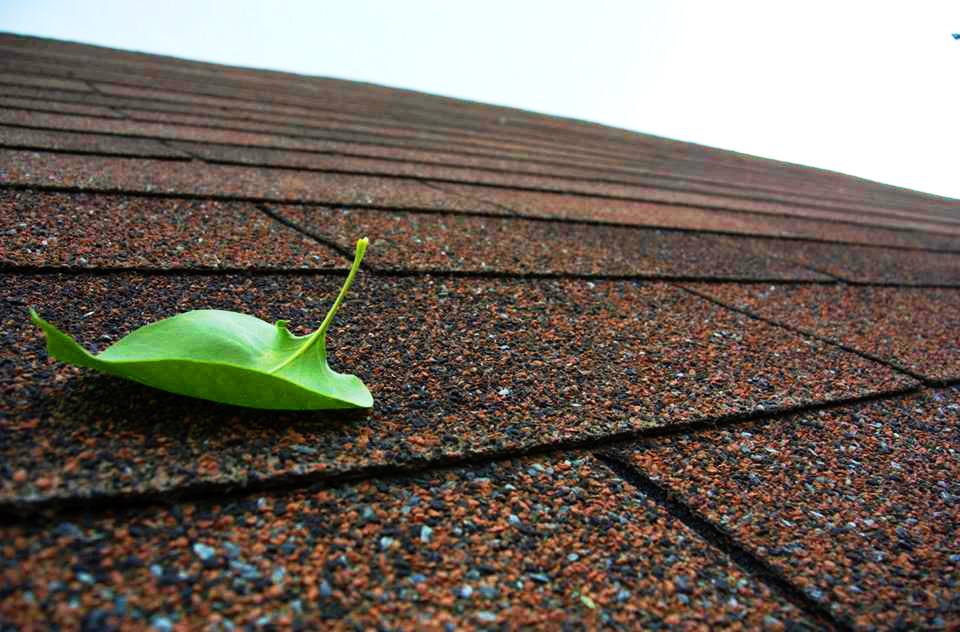
Number 4. Types of flexible tiles by the method of cutting sheets and color
Roofing material is usually evaluated according to the mass of parameters, and the appearance is taken into account in the first place. Aesthetics depend not only on color, but also on the shape of the element. Today, manufacturers of soft tiles offer us such sheet cutting options:
- shingles;
- rhombus;
- rectangle;
- oval;
- hexagon;
- "brick";
- "Beaver tail";
- Dragon tooth.
Some of them are designed to imitate natural material, for example, ceramic tiles, others - to give the roof an original look. Almost every manufacturer seeks to put these standard names in their own way, in order to distinguish the product from its competitors. In addition, in the collections of companies involved in the manufacture of soft tiles, you can find products and other forms.
Variety of colors even more. Tiles of red-brown, green and blue shades are popular, but the choice is not limited to this. Manufacturers have learned how to create not only plain products, but also with a transition from one color to another, and the capabilities of modern technology make it possible to paint in almost any shade, moreover, with a 3D effect. Changing the color of the sprinkle and the base, the shape of the sheet and the pattern on it, as well as the glossiness and dullness parameter, allows you to achieve original effects or complete resemblance to clay or wooden tiles.
On sale can be found three-layer soft tile, which differs from the usual two-layer not only in price and even higher operational qualities, but also in appearance. The third layer is applied with a slight displacement, which allows to achieve the effect of volume and relief, and this has a positive effect on the aesthetics of the coating.
No. 5. Types of soft tiles by modification
Installation of a roof from a bituminous tile requires use elements of different modifications:
- ordinary tile - this is the one that forms the rows and makes up the bulk of the roof covering;
- ridge tile it is used to equip the joints of the slopes of the roof and the ridge, gives the roof a finished look;
- eaves tile it is intended for arrangement of eaves, that part of a roof which assumes the greatest load in the autumn-spring period, being exposed to melt water and ice. Elements of such tiles have an increased thickness;
- ridge-roof tile combines the characteristics of the two previous species and is universal.

No. 6. What to consider during an external examination?
Sometimes much more about the quality of soft tiles will tell its visual inspection, rather than a description of the manufacturer's technical specifications. To choose a quality flexible tile, when buying, pay attention to the following points:
- flexibility. A high-quality product must be flexible and elastic - this is the key to its durability and practicality. To test the flexibility, it is enough to try to bend the material, not to fold in half, but to bend a little. A high-quality product will bend without problems, and then return to its previous state;
- the smell of bitumen should not be, because this is the first sign that it is actively evaporating, and this threatens with a loss of elasticity in the near future;
- stone chips should be uniform and dense, not crumble.If more than 2 g of crumbs falls from one shingle, this product is of poor quality;
- Availability self-adhesive surface greatly facilitates the installation of flexible tiles, but it is important that no more than 6 months pass from the moment of production of the product, otherwise you will have to deal with a construction hairdryer;
- single layer shingle thickness must not be less than 4 mm. Multilayer elements will be slightly thicker, they have increased resistance to moisture and wind.

Soft tiles are sold in packs of 22 elements, which roughly corresponds to 3 square meters. m of finished coating. Package weight is from 5-8 kg for single-layer products and up to 20 kg for multi-layer. Experts recommend using elements from different packages during installation - this is a guarantee that the roof will turn out aesthetic, even if the color of the material in different packs is slightly different. The quality and durability of a soft tile roof depends on the preparation of the base - a violation of technology can lead to a significant reduction in the life of the roof.
Number 7. The best manufacturers of soft tiles
The US is considered the trendsetter in the field of flexible tiles, because it is there that the material is most popular, at least for now. The largest companies such as Owens Corning, GAF and CertainTeed operate there, but their products are not well represented on the domestic market, since analogues from European companies are not inferior in quality and variety, but are cheaper. A couple of years ago, in connection with the crisis and the decline in European production, the soft tile market shrank by almost a third, which domestic producers could not help but answer, which instantly increased momentum and flooded construction stores with their products. Which tile manufacturers can be trusted?
- Tegola - An Italian company, operating since 1973, is a leader among European countries in terms of production of shingles. The priority of the manufacturer is not only performance, but also appearance, so in the company's collections you can find a unique tile, for example, copper plated. In total, the manufacturer offers several collections, with a dozen forms and about a hundred different colors. Factories and representative offices are located in 73 countries of the world, and thanks to the launch of the plant in the Ryazan Region, high quality has become more affordable for a domestic buyer.

- Katepal oy - The largest Finnish manufacturer of soft tiles, sells it under the brand name Ruflex. It has been operating since 1949, it sells products to countries in Europe, the Middle East and Asia. In the manufacture of used improved bitumen of the highest quality, providing frost resistance of products. The manufacturer takes into account Russian climatic features and supplies the most suitable products according to the characteristics to the domestic market. The variety of species, of course, is not the same as that of an Italian competitor, but it is still very rich and allows you to choose the right option. In assortment there is a two-layer tile. Prices are above average.
- Icopal - Another major Finnish manufacturer that offers high-quality shingles made with modern equipment and using the best materials. Only SBS-modified bitumen is used, the assortment is small, but includes all the most popular colors and shapes, prices are average.
- IKO - A company whose production is located in Canada, Belgium and Slovakia. The range of soft tiles is huge, there are actually designed forms, the variety of shades is very wide. Roof tiles are produced mainly using oxidized bitumen; prices are average.

- CertainTeed - One of the few American companies whose products can be found on the domestic market. The range is amazing, some products do not know analogues and are not found in other manufacturers. The price is high.
- Brai - Italian manufacturer offering soft tiles with copper coating.
- Kerabit - A Finnish company, characterized by a sufficient assortment and high quality products. Prices are average.
- Group of companies "TechnoNICOL" releases famous soft tile Shinglas and tilercat. Industrial capacities are constantly growing, customers are offered new colors and shapes of the material. All products comply with European quality standards, but at the same time they cost 1.5-2 times cheaper than foreign analogues. Of course, there are elite expensive options, but, regardless of the price, all products are of good quality and durability. The company offers several collections of soft tiles: the material differs in shape and color, the number of layers (there are multilayer products), there are also products with record performance, and a guarantee for them is given for 50 years.

- Döke Extrusion Group of Companies It has two plants in Russia, has been operating since 2005 and has representative offices in almost all regions of the country. The choice of tiles is sufficient, oxidized and SBS-modified bitumen are used, the guarantee for economy-class products is 20 years, for the more expensive - 50 years.
Soft tiles - this is almost an ideal roofing material that will last for more than a dozen years, you just need to choose a quality product, which will help the name of the manufacturer, and correctly carry out installation.

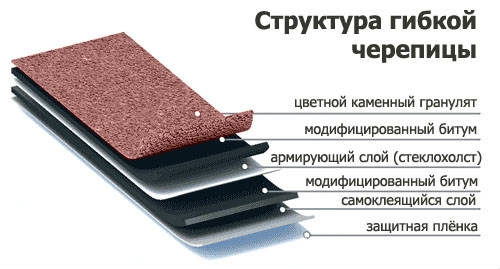
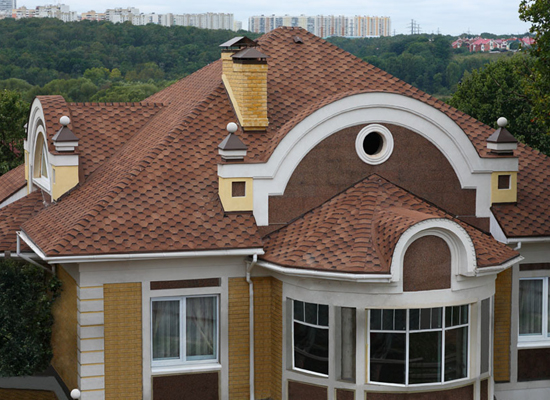
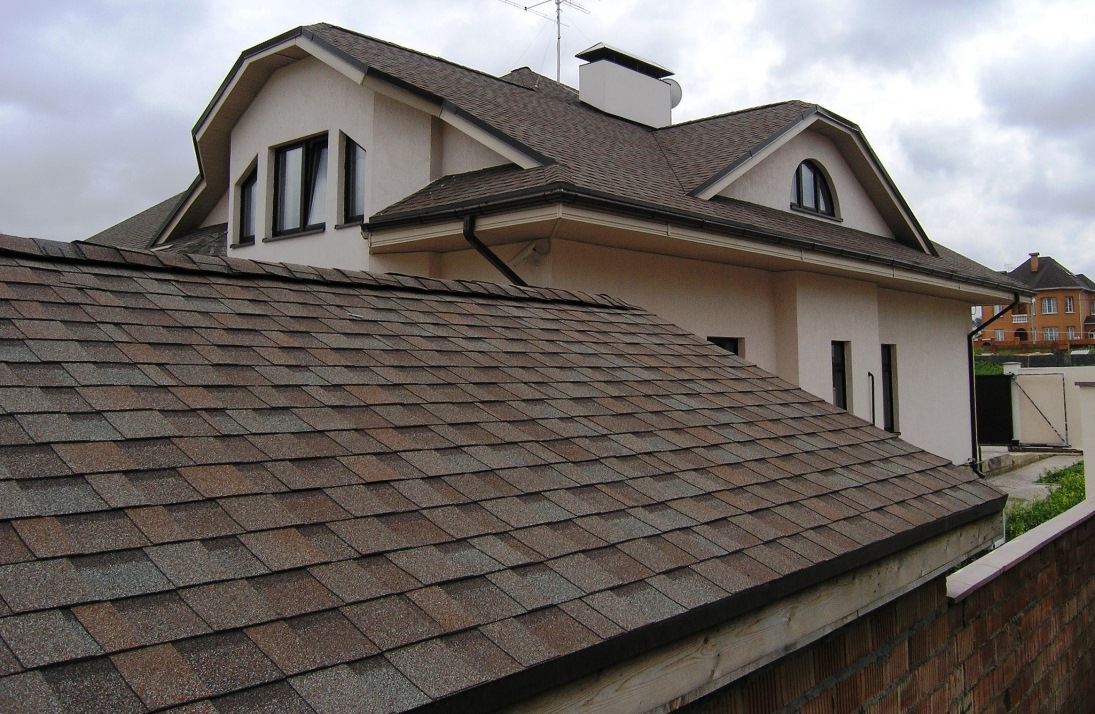
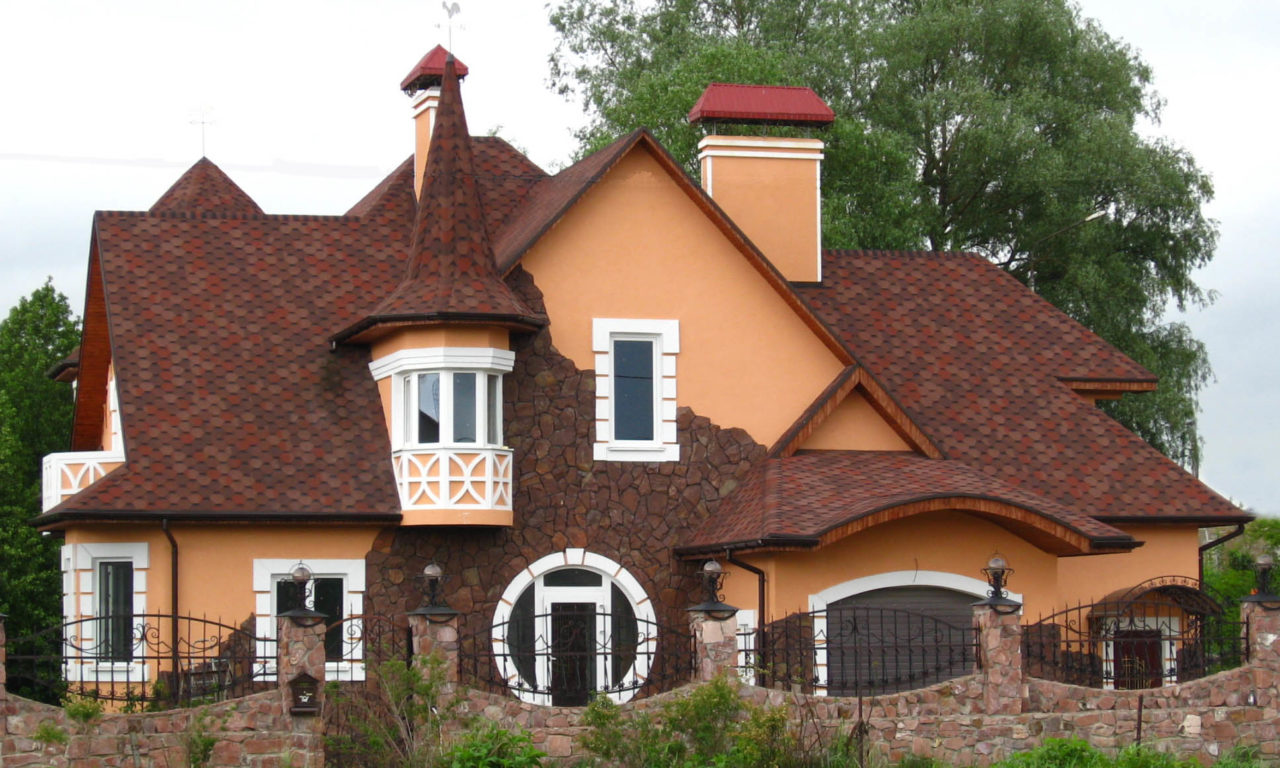
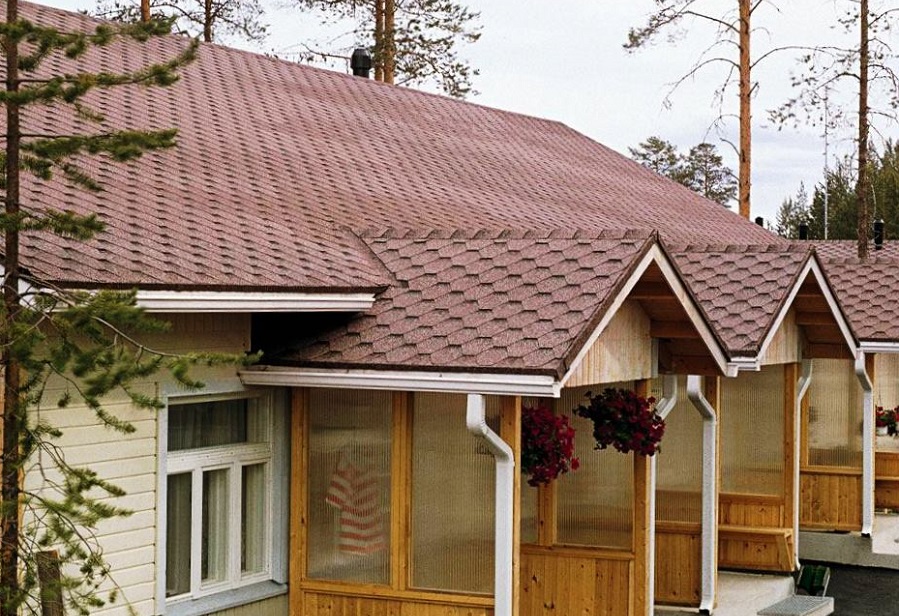
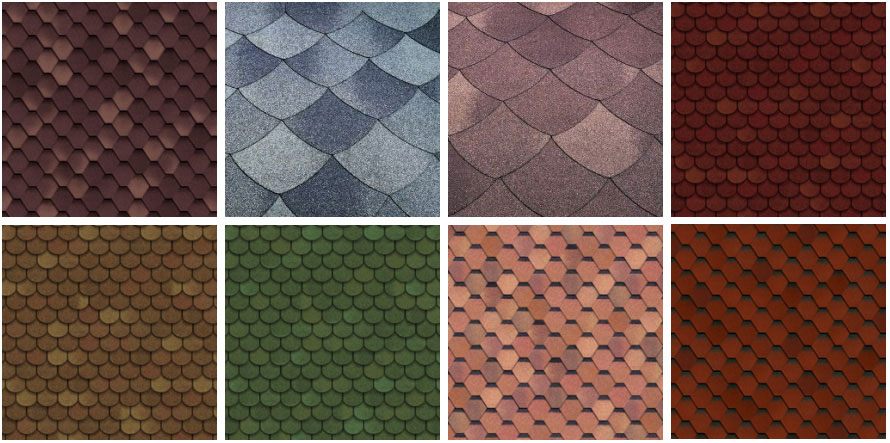
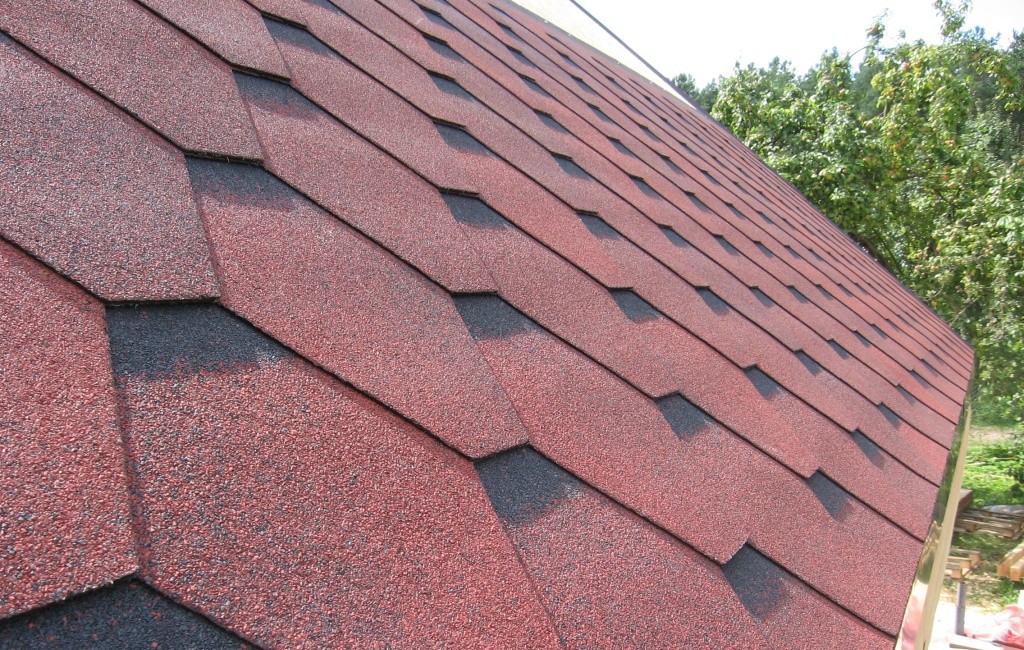
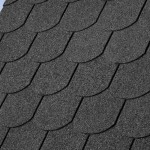
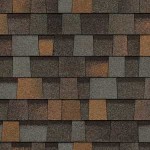
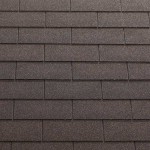
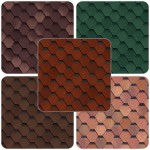
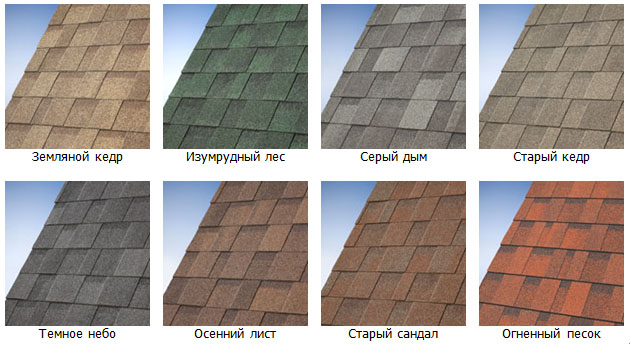
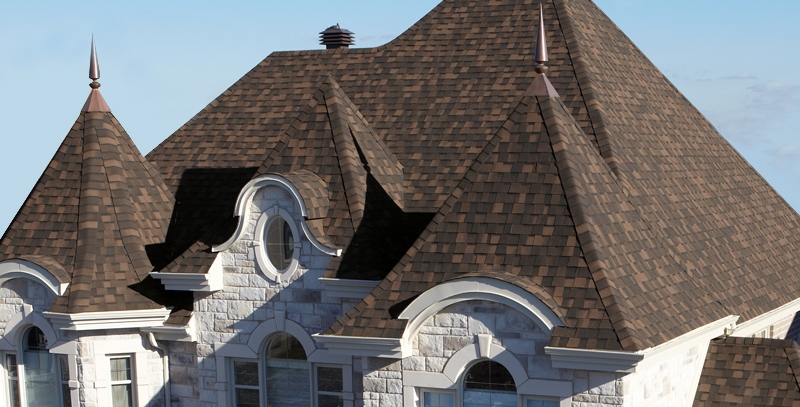
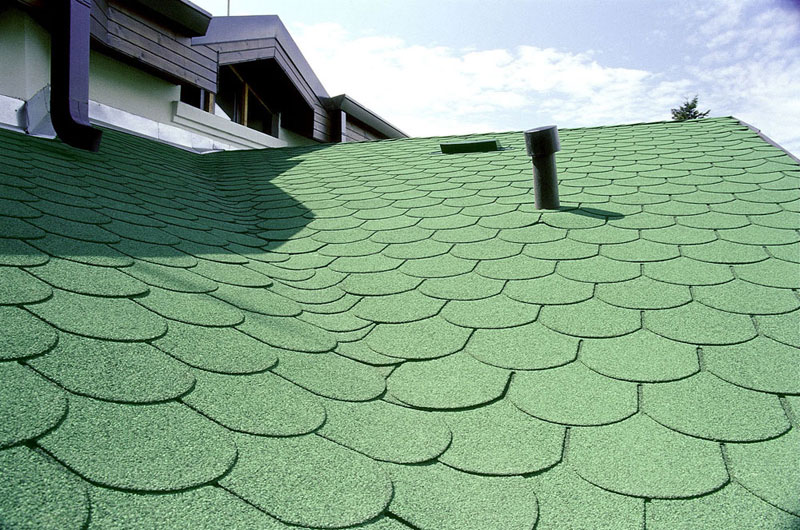
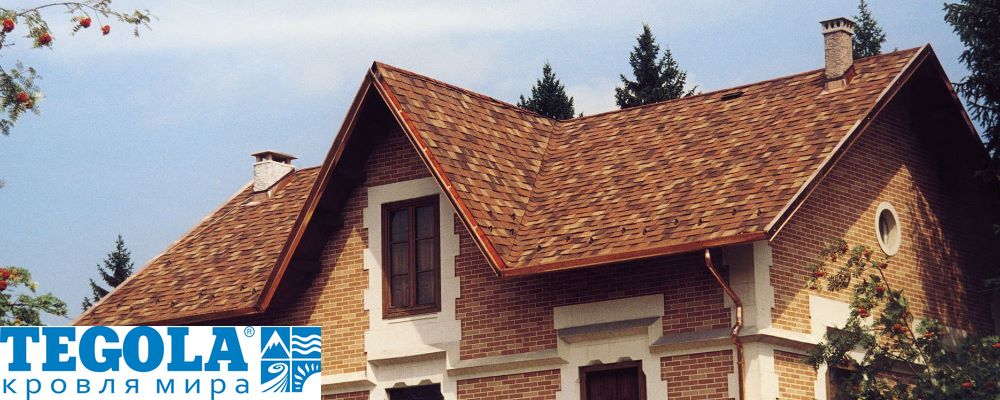
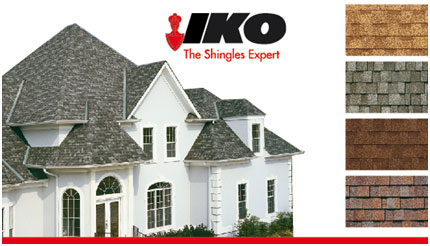
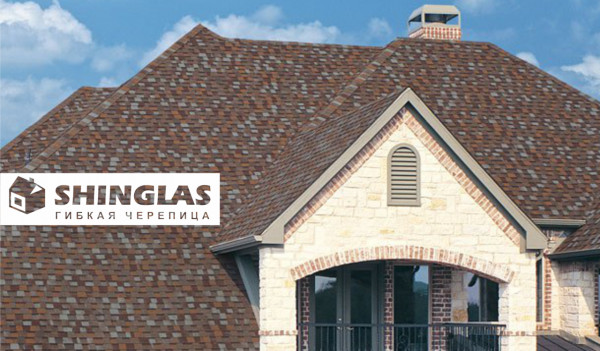

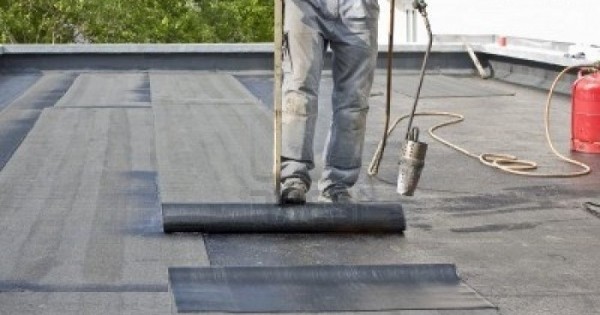
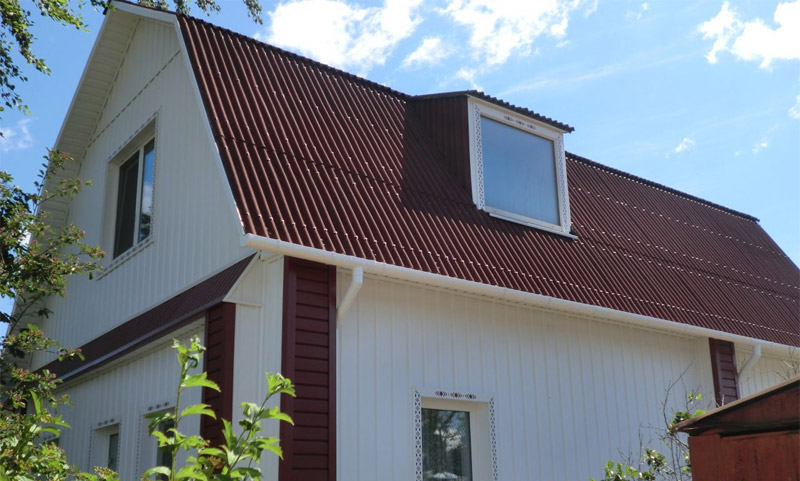
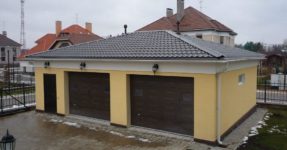
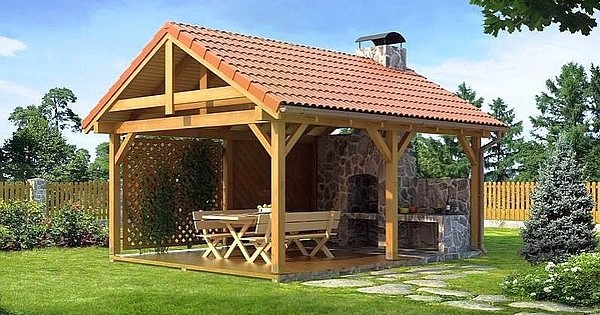
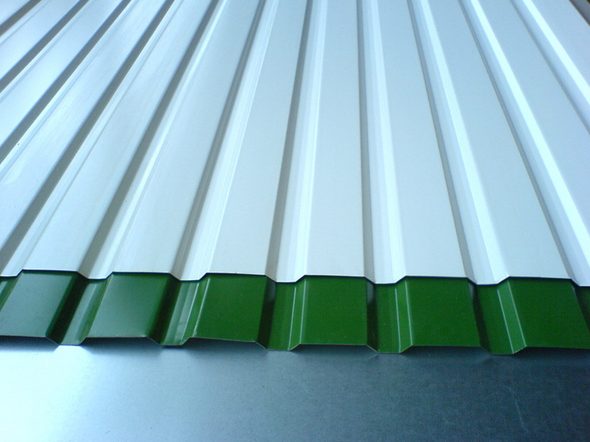
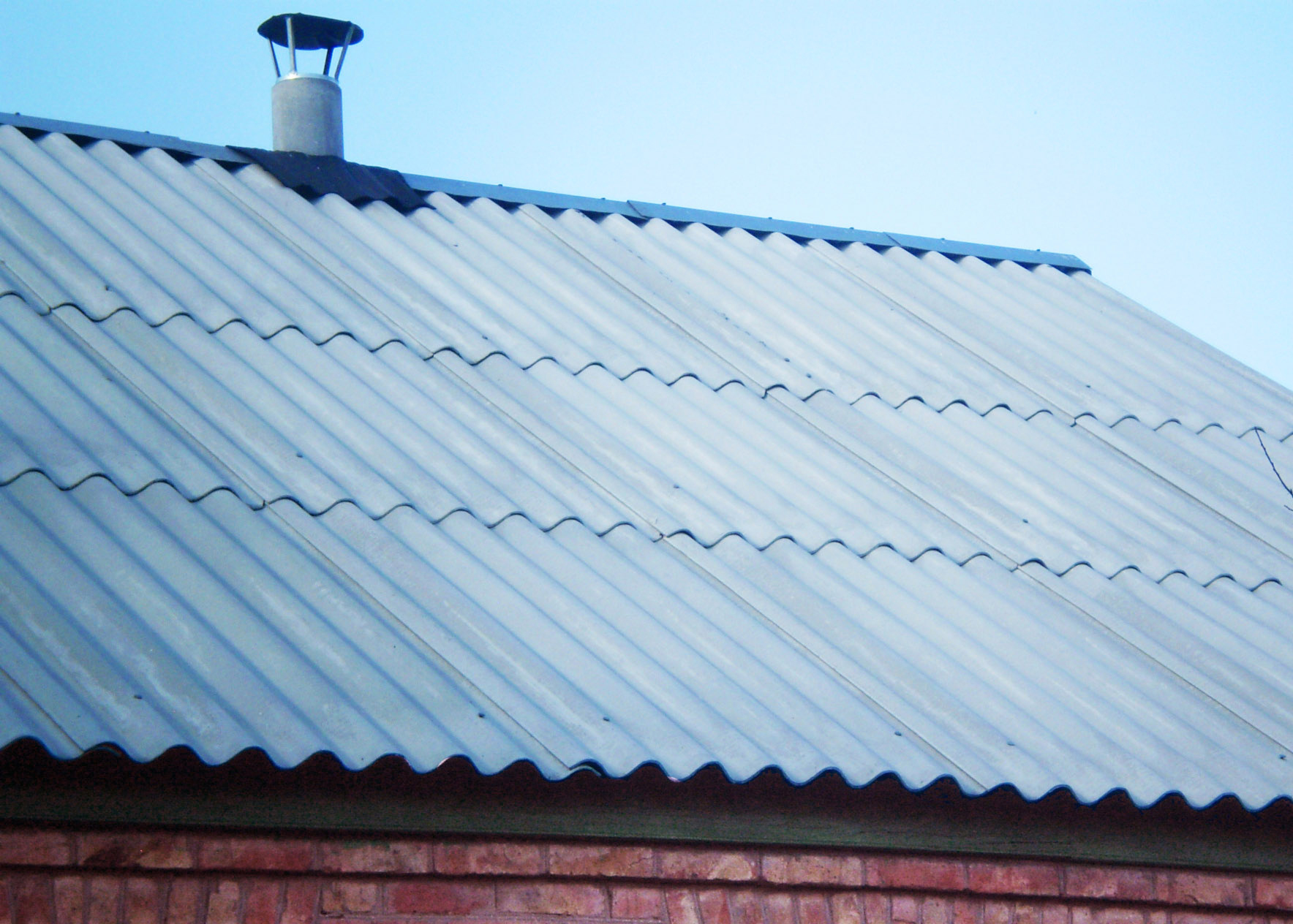
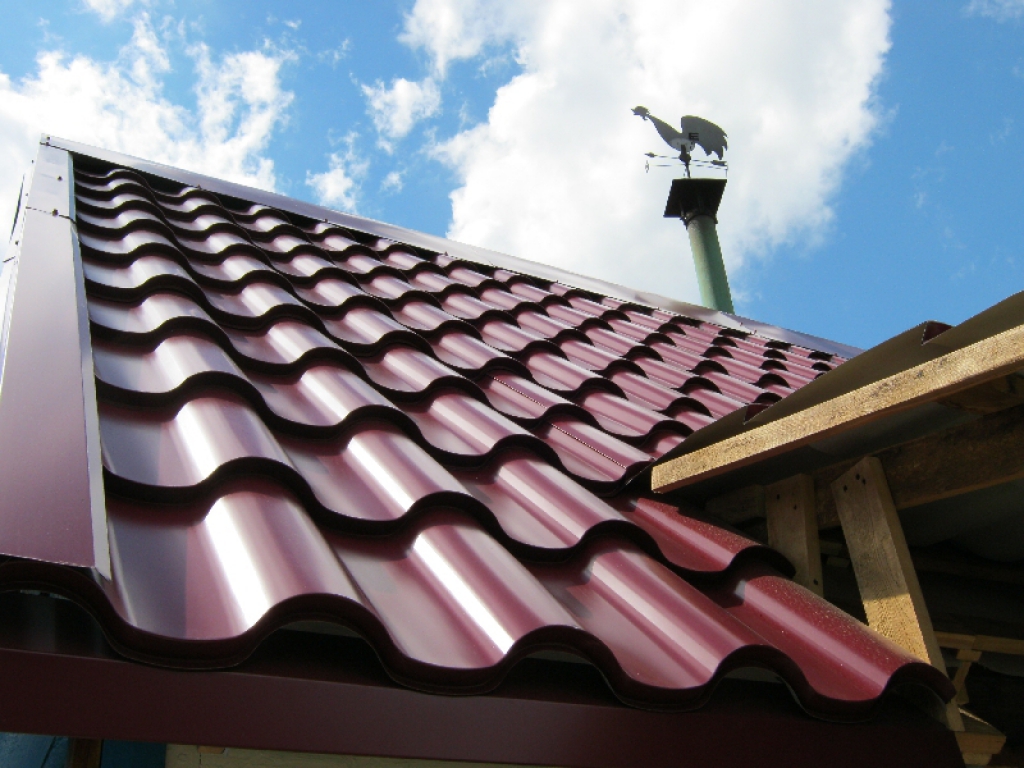


Thanks, very useful article!